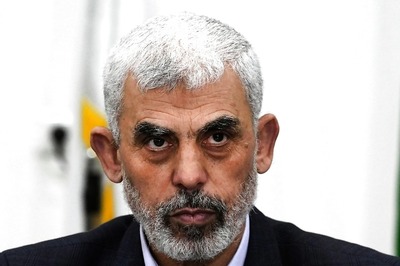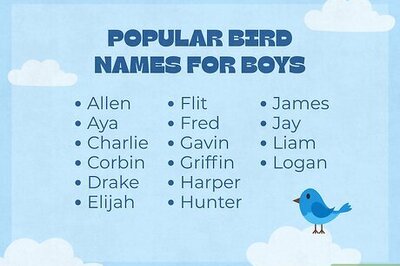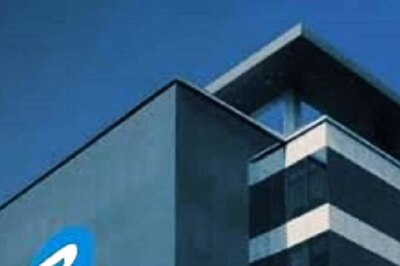
views
London: Britons began voting on Thursday in what is forecast to be the closest election since 1992, with the opposition Conservatives struggling to convert their opinion poll advantage into an outright majority.
The six latest newspaper polls put the Conservatives between six and nine percentage points ahead of Labour, making them the largest party, but denying them outright control.
The centre-right Conservatives, led by former public relations executive David Cameron, have seen their poll lead dwindle since the turn of the year, with voters seemingly reluctant to embrace their call for change after 13 years of rule by Labour.
At stake is how the British economy can recover from recession, and how the next government will reduce a huge budget deficit to slow an upward spiral in the nation's debt.
Markets want a clear-cut result and fear that a stalemate could lead to political paralysis, hampering efforts to tackle the deficit which is running in excess of 11 percent of GDP.
The equation has been made more complex by a surge in support for the centrist Liberal Democrats, energised by strong performances in TV debates by their leader Nick Clegg, who shares Cameron's relative youth and easy manner.
The likeliest outcome is a "hung parliament" in which no party wins an outright majority in the 650-seat parliament. Britain has not had an inconclusive election since 1974 and does not have the tradition of coalition-forming of its neighbours in continental Europe.
Sterling hit a near nine-month high on Wednesday against a euro weakened by the crisis in Greece. However, analysts say the markets could turn their fire on British assets should efforts to form a government prove protracted and messy.
Brown and out?
Prime Minister Gordon Brown's Labour party has shown some improvement in the latest polls and the quirks of the British parliamentary system mean it could finish third in terms of vote share and still remain the largest bloc in parliament.
That scenario would leave the Lib Dems holding the balance of power and certain to press their case for electoral reform to a more proportional system.
Clegg has said he would find it hard to do a deal with Brown if Labour does finish third, but has not ruled out working with an alternative Labour leader, or with the Conservatives.
The Lib Dems share Labour's concern that spending cuts should not be imposed until economic recovery is established and Labour are more open to electoral reform than the Conservatives.
The Conservatives have promised to cut the deficit harder and faster than Labour and to squeeze out 6 billion pounds ($9 billion) in efficiency savings in the current year.
Labour has warned voters that this could cost jobs and jeopardise the recovery but independent commentators say the figures are tiny compared with a forecast deficit this year of 163 billion pounds.
The latest surveys by Populus in the Times and ComRes for ITV News/Independent put the Conservatives on 37 percent of the vote, ahead of Labour on 28 percent. The Liberal Democrats slipped back to third place in four of the polls.
Bookmaker William Hill made a hung parliament its 4/7 favourite for the election outcome, with a Conservative majority the second favourite at 6-4.
Britain's tabloid newspapers were emblazoned with bold headlines, the Daily Express calling Thursday's ballot "D-day", while the Sun hailed Cameron as "Our Only Hope" in a front page decked out in the style of Barack Obama's campaign posters.
Only the Mirror pledged support for Brown, asking voters if they could really picture Cameron as Prime Minister, citing his hobbies as "cutting public sevices; rewarding rich and privileged" and "fox hunting".
Independent think-tanks have accused all the parties of failing to be open with voters about the scale of cuts that will be needed to restore public finances to order after the worst recession since World War Two.
Polls opened at 0600 GMT and will close at 2100 GMT. Exit polls broadcast immediately after polls close will give the first indication of the outcome, with results coming in from up and down the country through the night and well into Friday.


















Comments
0 comment